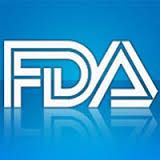Article
Say Goodbye, Trans Fat
Author(s):
The US Food and Drug Administration (FDA), has determined that partially hydrogenated oils (PHOs) – the main dietary source of artificial trans fat in processed foods – are not "generally recognized as safe" (GRAS), giving food manufactures the next three years to remove PHOs from processed food products.

The US Food and Drug Administration (FDA), has determined that partially hydrogenated oils (PHOs) — the main dietary source of artificial trans fat in processed foods — are not “generally recognized as safe” (GRAS), giving food manufacturers the next three years to remove PHOs from processed food products.
The FDA had made a preliminary determination in 2013 that PHOs would no longer be considered GRAS.
Previous actions had already led to a reduction in trans fat consumption. The FDA estimated a 78% reduction in consumer trans fat consumption from 2003-2012, largely due to industry reformulation requirements and a ruling announced in 2006 that manufacturers would be required to include trans fat content information on food labels.
According to Susan Mayne, PhD, director of the FDA’s Center for Food Safety and Applied Nutrition, “This determination is based on extensive research into the effects of PHOs, as well as input from all stakeholders received during the public comment period.”
The three-year period was set to provide companies ample time to either reformulate products without PHOs or possibly even petition for exemptions to continue using specific PHOs.
The FDA still encourages consumers to diligently screen food ingredient lists for PHOs. Apparently, foods are actually allowed to have labels of ‘0’ grams trans fat even if they contain 0.5 grams and less of trans fat per serving — an action also in the works of being altered.
Since many companies have already begun eliminating PHOs from processed foods, the FDA is hopeful others remove them as well despite the three-year buffer period.
Stephen Ostroff, MD, Acting FDA Commissioner, stated, “The FDA’s action on this major source of artificial trans fat demonstrates the agency’s commitment to the heart of all Americans. This action is expected to reduce coronary heart disease and prevent thousands of fatal heart attacks every year.”





